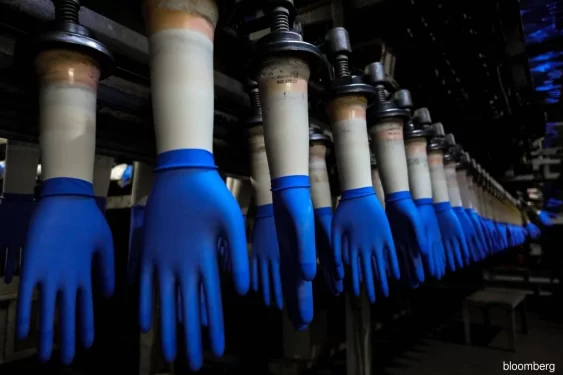By Adam Malek
I HAD earlier written about the natural dangers of limestone hills, with emphasis given to the state of Perak. This was due to the recent tragedy at Banjaran Hotsprings Retreat in November 2020, killing two visitors in one of the villas.
I guess I was lucky since COVID-19 scare in my family had resulted in us cancelling our holiday at this very place, which was scheduled at the time of the accident.
It was interesting how my letter had invoked response from The Association for the Protection of the Natural Heritage of Malaysia (PEKA) and subsequently from the Perak Menteri Besar (MB).
PEKA seemed to be very concerned about the ‘beauty’ of Gunung Lanno, expressing disappointment with the authorities for not ‘halting’ quarry activities which they believed to be the cause of destruction of flora and fauna in the area.
The Perak MB subsequently responded, commenting that although most quarries in the state were privately owned, the industry was strictly regulated by the state government. He further commented that the quarry industry was the biggest contributor to the economy of the state of Perak.
I am very disappointed that both PEKA and the Perak MB missed the point I was making in my letter – the unpredictable ‘natural’ dangers of limestone hills! Experts had clearly highlighted that even rainfall could eventually lead to natural dissolution of rocks thus weakening the structure of limestone walls, due to the presence of extensive joints and fractures within the limestone hills’ structures.
When ‘quarry activities’ are unnecessarily brought into the equation, the ‘natural’ dangers posed by limestone hills (as per tragedy at Banjaran Hotsprings Retreat), would end up being downplayed!
To me, if there were quarry activities in a certain area, no one should be allowed access within a certain perimeter. In such a case, whatever risk or potential danger that may exist would be obvious.
Unless there are parties who trespass and build structures illegally, quarry operators would never allow visitors or occupants within the perimeter concerned.
To stress my main concern – the “natural dangers of limestone hill” which are prone to collapse due to its very structure. Some of these hills in Kinta Valley Perak, are located either close to roads, residential areas and possible development, tourist attractions as well as structures that have been built, legally or illegally, in caves or at the foot of these hills for various purposes, which often house occupants.
As I had highlighted earlier, there had been close to 20 cases of natural limestone rock-falls around Ipoh alone, including the latest Banjaran Hotsprings incident. The worst tragedy was in 1973 in Gunung Cheroh, which killed 42 people. In 2009, the incident of Perak Caves also caused deaths and injuries, not forgetting damage to properties. These tragedies were certainly not caused by quarry activities – as clearly seen in the Banjaran Hotsprings tragedy.
I had hoped that the unfortunate incident at Banjaran Hotsprings would open the eyes of the Perak state government – to pay attention and take affirmative action by disallowing future permits to resorts or areas for public purposes, planned too close to limestone hills.
In cases like Banjaran Hotsprings, why was approval granted in the first place?
In Perak, there are a few places where temples, houses and other structures have been built in caverns or at foothills of limestone hills. It is not an excuse to claim that some of these structures were built illegally. Knowledge that they exist and had been occupied for so many years means that the Government would be held responsible should any untoward incident occur.
It is time for the Perak state government to accept the various studies and reports that have highlighted the natural dangers of limestone hills. Don’t just respond to complaints of the ‘destruction’ of the environment and the need to save ‘spiders’, when human lives are at stake. In most cases, quarry businesses do not carry out their operations in areas where people reside.
Hence, these activities pose almost no risk to human lives. In such a scenario, the risks will arise only when there are trespassers who illegally enter and build structures on the land concerned. Therefore, it is imperative for the party holding the rights to the land, to take action to ensure that the land is vacated.
I hope the Perak state government will pay heed to the thrust of my letter – the natural dangers of limestone hills. Let us not downplay this danger by bringing in complaints of quarry activities and arguments of threat to the environment. It is sad when human lives become secondary to the protection of spiders and other forms of flora and fauna. – Feb 25, 2021
Adam Malek is from Kuala Lumpur.
The views expressed are solely of the author and do not necessarily reflect those of Focus Malaysia.










